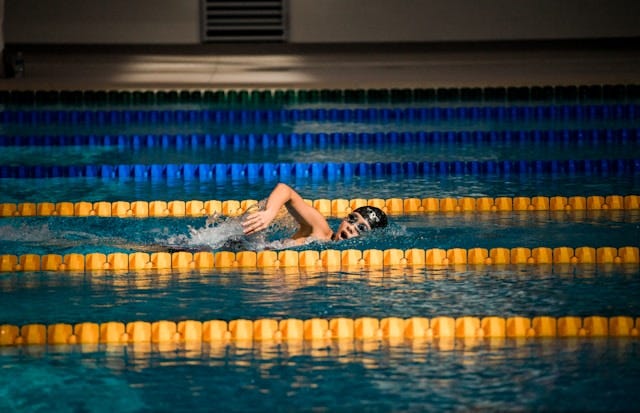The biggest mistake we make is not trying.
We waste so much time asking if something is going to be worth it. We treat curiosity like a risk. Before we begin, we want some kind of guarantee that our time and effort will pay off.
When I was a kid, I swam competitively. I was decent. I trained every morning and afternoon, five days a week. During the off-season, we trained on Saturdays too. I liked winning. I hated training. It hurt, it was repetitive, and for some reason our coach believed running five kilometres a day would make us better swimmers. I still call bullshit on that.
At some point I'd had enough. I went to my mum and asked her to speak to my coach. I wanted her to ask him if I had any real chance of making it to the Olympics. If he said no, I was going to quit. Mum, who I suspect was looking for an excuse to stop driving me to training and meets, agreed.
She asked. He gave a classic coach answer. He said, "It's up to him and how badly he wants it."
I hated his answer. In fact, I thought it was a cop-out. However, in retrospect, with a few decades under my belt I’ve learnt: if you hate the answer, you're probably asking the wrong question.
Here's what I should have understood then: nobody can tell you whether you'll succeed. The coach couldn't predict my Olympic chances any more than a psychometric test can guarantee you’d love being a lawyer, or a business mentor can promise your startup will make money.
Uncertainty is impregnable.
The question I should have asked was: "I want to swim in the Olympics. What will I have to sacrifice to get there?"
That would have given me something concrete to work with. A cost. A trade-off. The reality of what I’d have to sacrifice and endure. Then I could’ve made an informed decision about whether I was willing to endure the hours and the monotony, while never blinding myself to the fact that there is no guarantee that I’d make it.
I was looking for certainty where it couldn’t exist.
If you're waiting for certainty before starting something daunting, you'll never start. That's the trap. You'll just sit on the sidelines, watching other people go for it while you're still calculating odds.
This shift in thinking changes everything. Instead of asking "Will this work?" ask better questions:
How badly do I want this? Not how impressive it sounds to others, but how much it genuinely matters to you. The swimming pool at 5 AM will test that pretty quickly.

How hard am I willing to work? Be honest about your work ethic. Some people can handle grinding for years toward an uncertain outcome. Others burn out after months. It helps if you know which one you are.
How much discomfort will you endure? Every meaningful pursuit involves suffering of some kind. Rejection, failure, monotony, sacrifice. What's your threshold?
Then go talk to someone who's already done what you want to do. Ask how hard it really was. Ask how long it took. Ask what they gave up along the way. Ask about the failures that nearly broke them. Then weigh that reality against your desire and ask yourself if you’d be able to live with the failure.
This approach is also about choosing what not to pursue
You only get a finite number of years to make something meaningful happen. The window is shorter than most people realise. Maybe 35 to 50 years where you have the energy, drive and mental clarity to build something worthwhile. That's it.
You can't afford to waste those years chasing every interesting idea or pursuing things because they sound impressive to others. The opportunity cost is too high. Instead, focus on the things that energise you, the ones you're willing to suffer for.
When you attempt things that truly matter to you, you're more likely to persist when times get hard—and they will. And persistence (grit) is what separates those who achieve meaningful things from those who don’t.
It’s ironic that once you stop demanding guarantees and start asking better questions, you become more likely to succeed. Not because the odds improve, but because you're finally pursuing things for the right reasons, with realistic expectations about what it will cost you.
The biggest mistake we make is not trying. But the second biggest is trying the wrong things for the wrong reasons. Get both of those right, and you won't need to ask if it's worth it. You'll already know.




